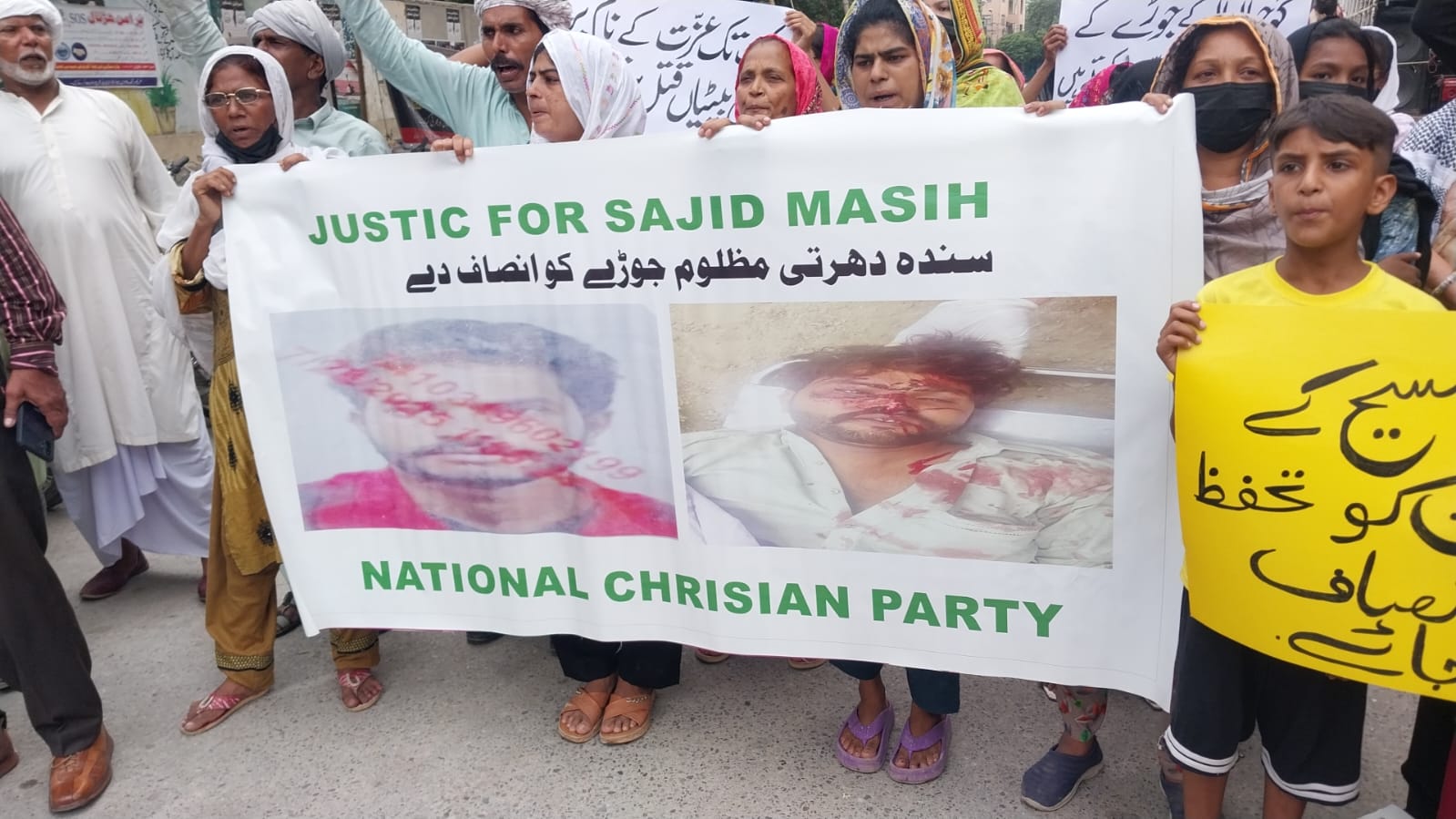News Desk
Karachi: August 2025:
The law enforcement authorities in Karachi have launched a murder investigation after the bodies of a young interfaith couple were discovered near the Clifton Sunday Bazaar. The victims—Sajid Masih, 28, a Christian man, and Sana Asif, 25, a Muslim woman—were found shot dead and dumped in a pit near the sea, each with gunshot wounds to the back of the head.
According to FIR No. 510, the couple had recently married in Karachi on July 20, following Sajid’s conversion to Islam. Originally from Gujranwala, Punjab, the couple had reportedly relocated to Karachi to escape escalating threats and societal pressure. Police recovered two 9mm shell casings and one .30 bore casing from the crime scene, suggesting the use of multiple firearms—and possibly multiple assailants. The case has been registered under murder charges against unknown individuals.
Arif Masih, Sajid’s father, shared a painful account of the months leading up to the tragedy, “We had told Sana’s family repeatedly—please stop. We are poor Christians, and we cannot afford conflict with people from the majority faith. But they wouldn’t stop. Sana’s family, especially the women elders, insulted us again and again.”
According to Arif, Sajid had confided that Sana was deeply isolated and emotionally distressed in her household, where her uncle served as her guardian. Their bond grew out of shared vulnerability, ultimately leading to marriage.
The Masih family faced escalating hostility. Arif said that a local elder once warned them that the couple had eloped and that their lives were in immediate danger. The family fled to a nearby city. Shortly afterward, Sana’s relatives allegedly burned their home, destroying their belongings and leaving them homeless.
“We lost everything—our house, our valuables, and now our son,” said Arif, in tears.
He also revealed that a Muslim friend from their village had helped Sajid and Sana relocate to Karachi and was with them at the time of their disappearance. That friend has been missing ever since the couple was killed. “They got married legally. Sajid even changed his religion to be with her. And still, they were killed. We just want justice. Nothing more.”
Joseph Janssen, human rights activist, called the killings, “A chilling reminder of Pakistan’s ongoing crisis of honor-based violence and religious intolerance.”
He stressed that despite existing laws—especially the Criminal Law (Amendment) Act, 2016, which was designed to close forgiveness loopholes in honor killings—implementation remains dangerously weak. “What happened to Sajid and Sana is not an isolated incident—it’s part of a broader pattern of hate crimes. Until the law is enforced and authorities take these cases seriously, vulnerable citizens will continue to die.”
Janssen urged the government to honor its commitments under CEDAW (Convention on the Elimination of All Forms of Discrimination Against Women), emphasizing that honor killings are not family matters but violations of fundamental human rights.
Shabbir Shafqat, Chairman of the National Christian Party, also strongly condemned the double murder, “If Sajid converted and they married legally under the law, then how can this brutal murder be justified? These were Pakistani citizens—not enemies.”
He added that while the couple may have taken a difficult path to love, the answer is not violence, “There are many examples in Pakistan of successful interfaith marriages. Yes, their situation was complicated, but that does not justify killing. We must reject violence as a response to such cases.”
He called on the authorities to conduct a fair, unbiased investigation and provide justice without delay: “The lives of two young people have been extinguished. Their families are in grief and fear. Justice is the least the state can deliver.”
The killings of Sajid and Sana highlight the dangerous intersections of religion, honor, and social hierarchy in Pakistan. While interfaith marriages are not explicitly prohibited under law, they are often met with fierce resistance from families and communities, particularly when involving women from the majority religion.
Despite legislative reforms, honor killings remain common, often disguised as matters of family reputation or religious fidelity. Victims’ families, especially from minority or low-income backgrounds, rarely see justice.
As the investigation unfolds, both families—particularly Sajid’s—remain in hiding, fearful for their safety.


